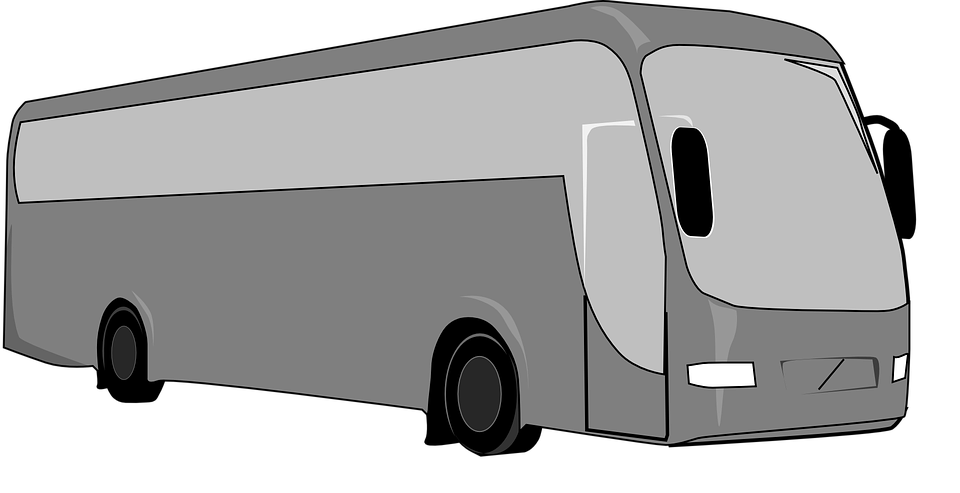For The Transit Fans: Vehicle Profile: Rapid Transit Series
With a production lifespan of over 38 years, the RTS is certainly deserving a place in the Hall of Transit Greats.

NYCTA GMC RTS

Manufacturer Quick Facts:
Founded: 1901
Main Office: Detroit, Michigan
Industry: Trucks and Buses
Notable Product: GM New-Look, GM Old-Look, RTS. GMC Topkick, CCKW, DUKW, Sierra, Yukon, Terrain

This WMATA GMC RTS still exists today as part of the Historic Fleet
Model Quick Facts:
Vehicle Length: 30, 35 or 40 Feet
Vehicle Width: 96 or 102 Inches
Vehicle Height: 119 Inches
Engine Options: Detroit Diesel 71, 92 and 50 Series, Cummins or Caterpillar Diesel Engines
Transmission Options: Allison V730 or ZF 5HP-500 Transmissions
Assembly: Pontiac, Michigan, United States
Roswell, New Mexico, United States
Niskayuna, New York, United States
Saint-Eustache, Quebec Canada

DART Novabus RTS
Overview: The RTS is a product of GM's entry into the Department of Transportation's "Transbus" project going head to head in a selection competition with the equally ranked Flxible Metro B. The RTS at the time was considered futuristic because of its curved body panels and window design, which paid homage to its older brother the GM Fishbowl which had a curved windshield. GM understood it faced fierce competition from the Flxible Metro B and as such developed a back-up plan in case it did not win the competition. GM simplified the RTS and began to proceed with production early after securing procurement contracts from several transit agencies in Texas, Massachusetts and California. Some later examples were sent to Detroit where it also won a contract. The RTS is most notable for its flexibility in customization. Its simple design meant that agency specific requests were not difficult to satisfy. CTA in Chicago requested Front wheelchair lifts and a rear window. A special version called the RTS-WFD (Wide-Front-Door) was commissioned for CTA in Chicago. The RTS was built in a one door "suburban" configuration but was abandoned due to low sales.
The RTS was built by 4 different manufacturers throughout its lifetime.
A Storied History: The RTS was originally designed and built by General Motors, GM sold the patent rights to Transportation Manufacturing Corporation (TMC, a subsidary of MCI) in 1987. After TMC and MCI completed an order for New York City, TMC sold the rights to NovaBus of Quebec. NovaBus produced the RTS until 2002 when the company exited the United States market to focus on its LFS design. The design was revived by Millennium Transit Services in 2006 but after failing to secure contracts for the RTS went out of business in 2009. Millennium Transit Services re-entered the Market in 2011 at a transit convention in New Orleans where it announced a new RTS in 42 ft configuration. Today most new RTS buses are purchased by smaller cities and municipalities and airports as shuttle buses. Dupont Industries, a private company, restores older RTS models to working condition, saving them from scrapyards.

Disney Transport NovaBus RTS equipped with new TV Screens
Driving Experience: Operators of the RTS note that the bus handles like a "throwback" like buses of the past. This is mostly due to the unchanged construction and limited electronic assistance. Most RTS buses are still diesel but some have been converted to run on CNG. The RTS is notable for its turning capabilities because it has no tail swing.

Fairfax Connector (Suburban Washington DC) NovaBus RTS. Recently sold at auction and has been converted to be a Party Bus.
The RTS has earned its place in among the Transit Greats becoming an icon over time.
RTS
-
 4
4




2 Comments
Recommended Comments
Create an account or sign in to comment
You need to be a member in order to leave a comment
Create an account
Sign up for a new account in our community. It's easy!
Join the herd!Sign in
Already have an account? Sign in here.
Sign In Now